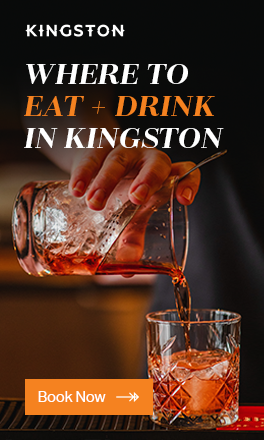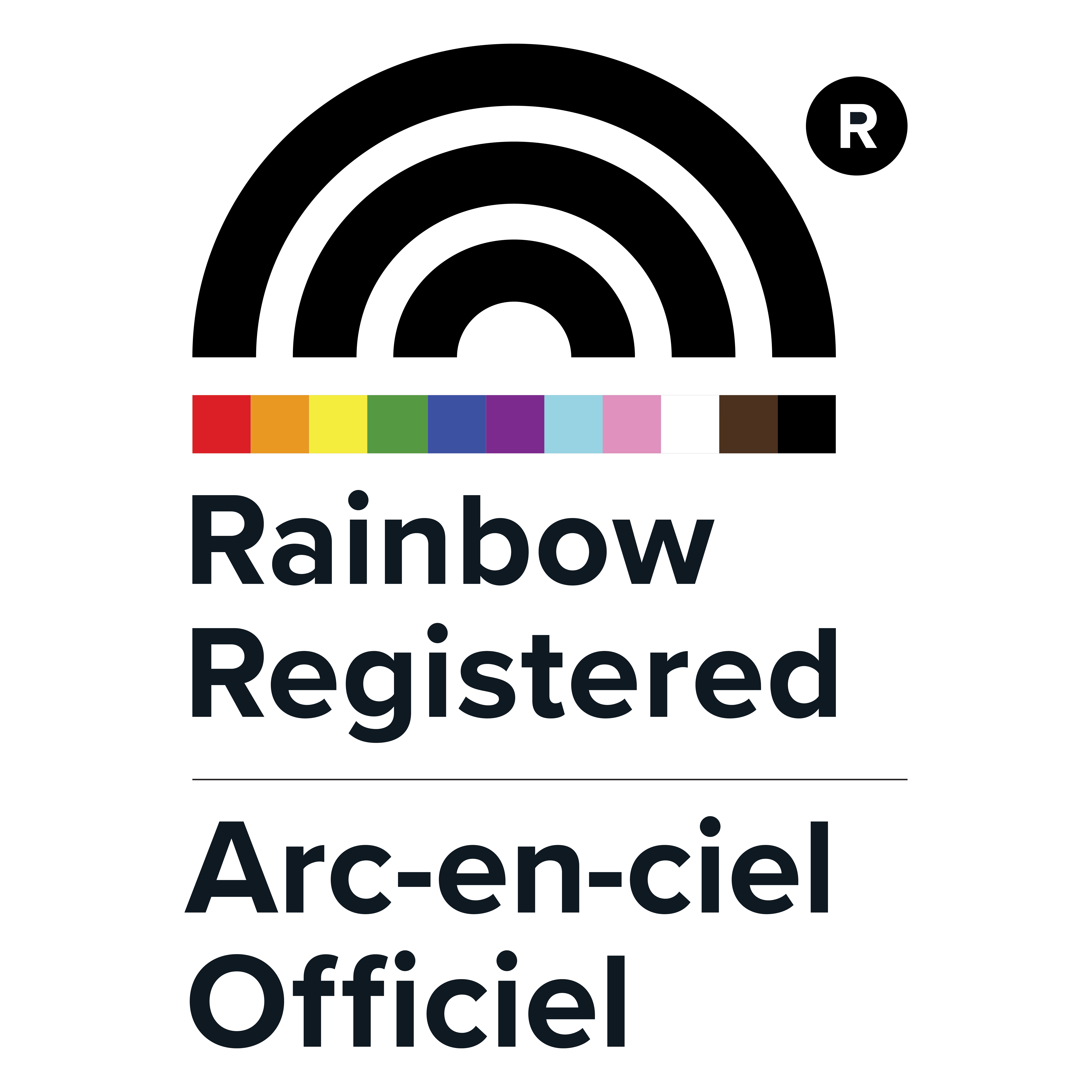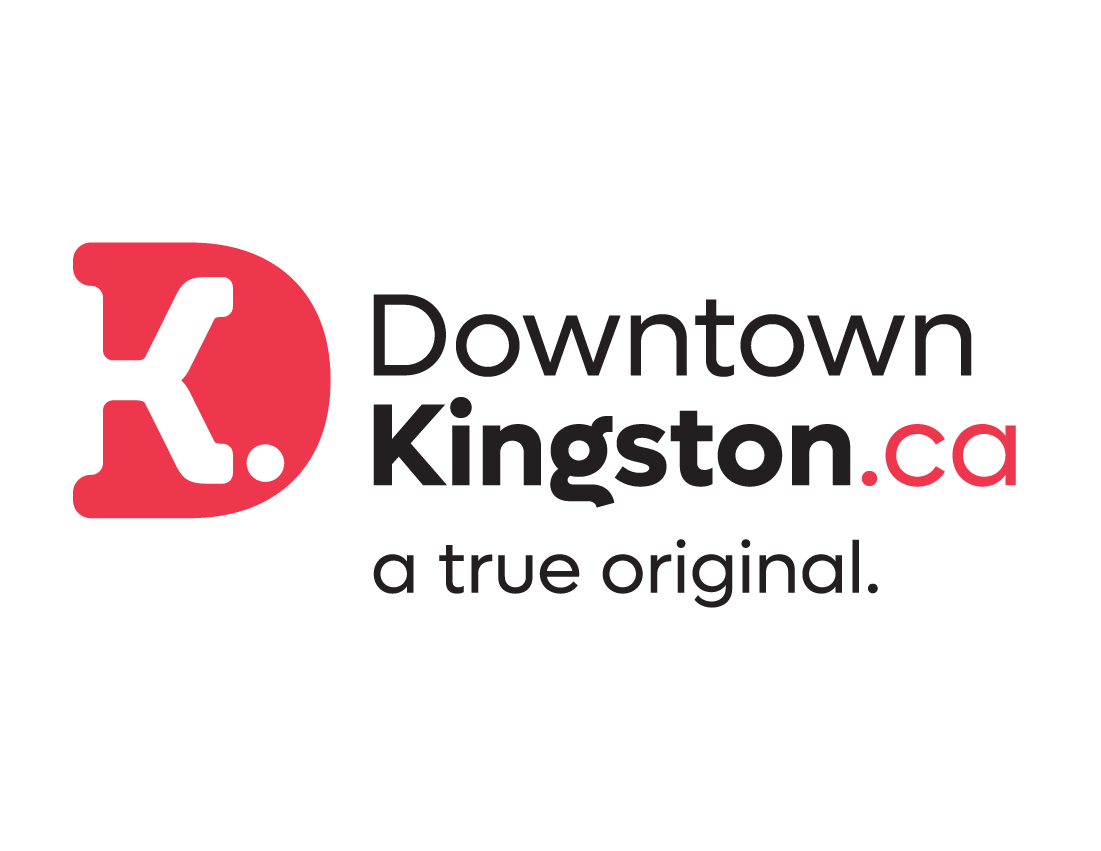Skeleton Park Brewery | 675 Arlington Park Place, Unit 3 | Facebook
At Skeleton Park Brewery, Trevor Lehoux and Becky Lu have revived traditional Kingston beers, with a twist.
Kingston has been home to breweries since the late 1700s. Skeleton Park Brewery has recreated old local recipes, using traditional ingredients and leveraging Kingston’s mineral-rich water to make great beer.
Their flagship beer, the Amber 6.6, “happened by mistake, in a way,” says Trevor. When they started brewing in Kingston, he wanted to try a 6.6% amber ale, and thought to explore Kingston’s beer history for inspiration.
View this post on Instagram
Through archival research, he found an old local newspaper ad for a 7% amber ale. In the same newspaper, there was a classified ad from the same brewer, looking for certain ingredients. So, with that, Trevor had the beginnings of recreating an old Kingston beer recipe.
“For our other heritage beers, like the Proper English ale, we couldn’t find recipes. Brewers of the day were super secretive; they kept their recipes in their heads. But we have found traces of ingredients.” Recreating old recipes for their English ale and Bohemian pilsner involved a bit more detective work.
“For the hops we use for the English ale, there’s a farmer in the Ottawa Valley area, who found it growing at the back of his farm. It was a non-native species. As it turned out, it was really closely related to a hop called Fuggle, an English hop.” Trevor surmised that this type of hop had been introduced to the region by the Loyalists in the 1780s. Today, the “Loyalist hop” is a signature component in Skeleton Park’s Proper English Ale.
View this post on Instagram
Skeleton Park’s third mainstay in the Heritage series is their Bohemian pilsner. “I really suspected that someone would have brewed a Bohemian-style beer in Kingston. So, we did a lot of research on the family names of local brewers and where they came from. And that led us to what they would have brewed because they came from a certain region. So, the last name “Bajus” – that lineage comes from the Czech Republic/Northern Germany area. The Bajus family [who ran the Bajus Brewery on Rideau Street] came from a specific region in Germany that was known for Bohemian-style beer.”
Skeleton Park’s Sol juice IPA is not a traditional type of beer. But, “the malt behind it, there’s a story,” says Trevor. “Back in the day, there was a transition point away from malted barley. Barley was the cash crop in Ontario. And that stopped as bakeries became more popular, and wheat became the cash crop to grow. Brewers couldn’t get their hands on barley, so they started substituting with wheat and oats.” The Sol Juice IPA incorporates those grains, and so, even if it’s not a traditional type of beer, does reflect the evolution of beermaking in the region.
Speaking of grain, it takes a lot of it – whether you use barley, wheat, oats, or rye – to make beer. The grain is malted – steeped in hot water, then dried – to allow the conversion of starch to sugar that will help fermentation. So, what happens to all that grain after the beer is made? Becky and Trevor have found a few great ways to put it to good use. For some time now, the spent grain from the brewery has been incorporated into dog treats made by Lakeside Dog Biscuits, a local business. (Skeleton Park Brewery is also a dog-friendly property.)
View this post on Instagram
More recently, the brewery has connected with VOCEC, an employment club for people living with mental illness. One of VOCEC’s businesses, Great Lakes Kitchen, uses the brewery’s spent grain in their pretzels, also available for purchase at Skeleton Park. (Becky has also used the spent grain in her breadmaking at home.) And whatever is not used in those endeavours is donated to farmer friends in Harrowsmith for their cows.
In addition to cutting down on waste from the brewing process, it’s a nice way to make connections between the brewery and the local community.
And speaking of keeping things local, this summer, Skeleton Park Brewery launched the first beer in its 100 mile series, which uses ingredients found within 100 miles of the brewery.
View this post on Instagram
While they usually use barley from out west, for the local series, they sourced Ontario barley, malted by Barn Owl Malt in Belleville. Trevor describes Ontario barley as having a distinctive aroma and taste, almost like pie dough, adding a unique flavour for the local brew. The hops come from the Wolfe Island Hopyard. “They supplied four different kinds of hops, and from those different types, we were able to select ones that worked really well for specific recipes.”
And putting it all together, Kingston water. “Kingston water is awesome for beermaking,” says Trevor. “With all its mineral content, we really don’t have to do anything to it, besides filter it. The mineral content is perfect for the styles of beer we make.”
View this post on Instagram
A number of Skeleton Park beers are available at the LCBO, with a greater selection at local restaurants. “A lot of restaurants like to support local,” says Becky, “and they like knowing the story behind the product.” Limited-edition brews like the 100-mile series, as well as special cask ales, are available only in the Skeleton Park Brewery taproom, while supplies last. It’s worth a trip to their Arlington Park Place taproom to see what’s new on tap. And if you go on Fridays, they feature live music from 5 to 7 pm, with different local musicians every week.





















